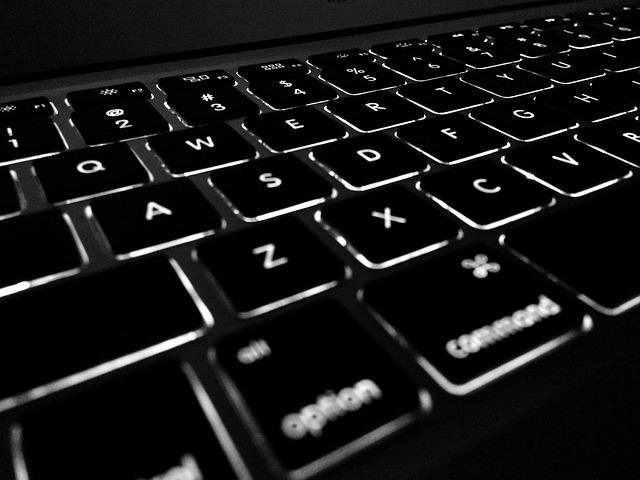- Introduction
- Importance of Academic Integrity
- Understanding Plagiarism
- Features of Free Plagiarism Checkers
- Top Free Online Plagiarism Checkers
- Conclusion
- FAQs
Introduction
In today's academic landscape, maintaining integrity is vital for success. This article explores the essence of academic integrity, dives into understanding plagiarism, highlights the best free online plagiarism checkers, and discusses their features. By mastering academic integrity, students can create original work while effectively using these invaluable tools.
Importance of Academic Integrity
Academic integrity is fundamental in educational institutions worldwide. It encompasses the ethical standards and principles that guide scholarly work, ensuring honesty, trust, fairness, respect, and responsibility among students and educators alike. Upholding academic integrity fosters a culture of trust, enabling collaborative learning and critical thinking, which are crucial to any academic pursuit.
When students engage in dishonest practices, such as plagiarism or cheating, they not only jeopardize their academic careers but hinder their learning process. Academic integrity encourages individuals to think critically and develop their own ideas based on thorough research and analysis. By doing so, they contribute to the body of knowledge and improve their skills, equipping themselves for future endeavors.
The importance of academic integrity extends beyond educational confines; it prepares students for professional responsibilities. In industries driven by innovation and collaboration, ethical practices streamline communication and ensure fair competition. Therefore, embracing academic integrity helps students transition seamlessly from academia to the workplace, fostering professionalism and credibility in their respective fields.
Furthermore, many educational institutions have strict policies regarding academic misconduct. Violations can lead to severe consequences, including failure in assignments or courses, suspension, or even expulsion. Thus, understanding and adhering to principles of academic integrity is indispensable for students throughout their educational journey.

(Image: Pixabay/@geralt)
Understanding Plagiarism
Plagiarism is one of the most significant threats to academic integrity. It involves presenting someone else's ideas, words, or work as one's own without properly attributing the source. Plagiarism can take various forms, including direct copying, paraphrasing without credit, and self-plagiarism, where an individual reuses their previous work without disclosure.
Students often misunderstand the nuances of plagiarism. Some may inadvertently commit plagiarism due to lack of knowledge regarding citation styles or the importance of original expression. As a result, it's essential for learners to educate themselves on proper citation practices and develop their writing skills to minimize the risk of accidental plagiarism.
Understanding plagiarism isn't solely about avoiding academic penalties; it’s about respecting the intellectual property of others. Writers invest considerable time and effort in producing original work. Recognizing their contributions through proper citation honors their efforts and enhances the quality of one’s writing by situating it within a broader scholarly conversation.
Moreover, developing original ideas not only enriches a writer's academic experience but also strengthens critical thinking and analytical abilities. Engaging deeply with sources enables students to present informed opinions rather than simply summarizing existing literature. Thus, understanding and addressing plagiarism plays a vital role in cultivating a robust academic framework that encourages creativity and innovation.

(Image: Pixabay/@Pexels)
Features of Free Plagiarism Checkers
Free online plagiarism checkers provide essential tools for maintaining academic integrity. While the accuracy and comprehensiveness of these tools may vary, several key features distinguish effective checkers from subpar ones. Understanding these features helps students make informed choices when selecting a plagiarism detection tool.
First and foremost, a reliable plagiarism checker should offer a user-friendly interface, allowing users to upload documents easily or copy and paste text for analysis. Speed is another important factor; effective tools can quickly analyze large pieces of text and generate results without significant delays. Additionally, the depth of the database used for comparison significantly impacts the tool's accuracy; reputable checkers access extensive databases that encompass published literature, academic papers, and other online sources.
Comprehensive reports are another hallmark of quality plagiarism checkers. Users benefit from detailed summaries that highlight matching text and potential sources, facilitating a better understanding of how to improve their work. Moreover, some advanced checkers incorporate features like grammar checking, style analysis, and citation suggestions, offering added value beyond simple plagiarism detection.
Lastly, privacy and security are paramount. Students ought to use plagiarism checkers that respect user confidentiality. A trustworthy tool should clearly communicate its data handling practices, ensuring that submitted works will not be stored or shared without permission. Selecting platforms with strong privacy policies helps maintain the integrity of an individual's original work while using plagiarism detection services.

(Image: Pixabay/@Deviser)
Top Free Online Plagiarism Checkers
With numerous options to choose from, navigating the world of free online plagiarism checkers can be overwhelming. To assist you in finding the right tool, we’ve compiled a list of some of the best free plagiarism checkers available today. Each of these tools offers specific strengths to help enhance your writing process.
1. **Grammarly**: While primarily known as a grammar-checking tool, Grammarly offers an excellent plagiarism checking feature as part of its premium package. It compares your writing against billions of web pages and academic papers, providing a comprehensive report on any similarities found.
2. **Quetext**: Quetext is a user-friendly plagiarism checker that offers a limited free version alongside more advanced paid options. It uses DeepSearch technology, allowing it to identify complex instances of plagiarism and providing accurate results. The interface is intuitive, making it easy for students to navigate and utilize.
3. **Plagscan**: Plagscan is a versatile plagiarism detection tool popular among educators and students. It allows users to check their work against online and offline sources, offering detailed reports with suggested improvements. While it has a premium version, it also provides free checks up to a certain word limit, making it accessible for quick assessments.
4. **PaperRater**: PaperRater combines grammar and plagiarism checking into one platform. It offers a free plagiarism checking service that analyzes submitted content for originality and provides feedback on writing style, grammar, and vocabulary. This multifaceted approach aids students in improving their overall writing skills.
5. **Small SEO Tools**: This website offers a straightforward and efficient plagiarism checker that scans the internet for duplicate content. Users can copy and paste text or upload documents for analysis. Although it may lack advanced reporting features, it is a quick and effective way to ensure content uniqueness.

(Image: Pixabay/@danfador)
Conclusion
Mastering academic integrity is essential for success in educational environments. Understanding plagiarism is critical for students, as it empowers them to create original work, respect intellectual property, and build their own analytical skills. The abundance of free online plagiarism checkers paves the way for individuals to practice academic integrity effortlessly. By utilizing these tools, students can ensure their work remains unique while enhancing their writing capabilities. Ultimately, committing to academic integrity provides long-lasting benefits that continue far beyond the classroom.
FAQs
What is academic integrity?
Academic integrity refers to the ethical standards and principles guiding scholarly work, ensuring honesty, trust, fairness, and respect among students and educators.
Why is plagiarism a serious issue in academia?
Plagiarism undermines academic integrity, jeopardizes learning, and disrespects the original authors' intellectual efforts. Violating plagiarism rules can lead to severe academic penalties.
Are free plagiarism checkers effective?
While free plagiarism checkers can be effective for initial assessments, they often lack features and depth compared to premium tools. However, several reputable free options are available for students.
How can I avoid plagiarism in my writing?
To avoid plagiarism, always attribute sources correctly, paraphrase wisely, and develop your writing skills to compose original content. Utilizing plagiarism checkers can further help ensure text uniqueness.
